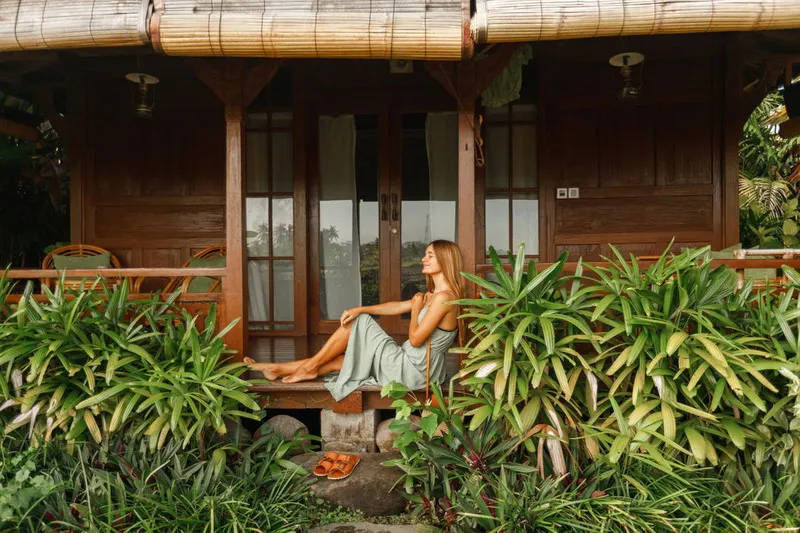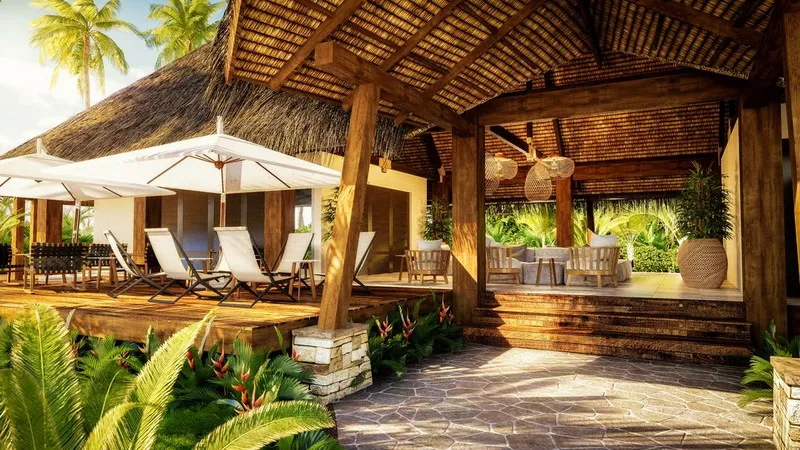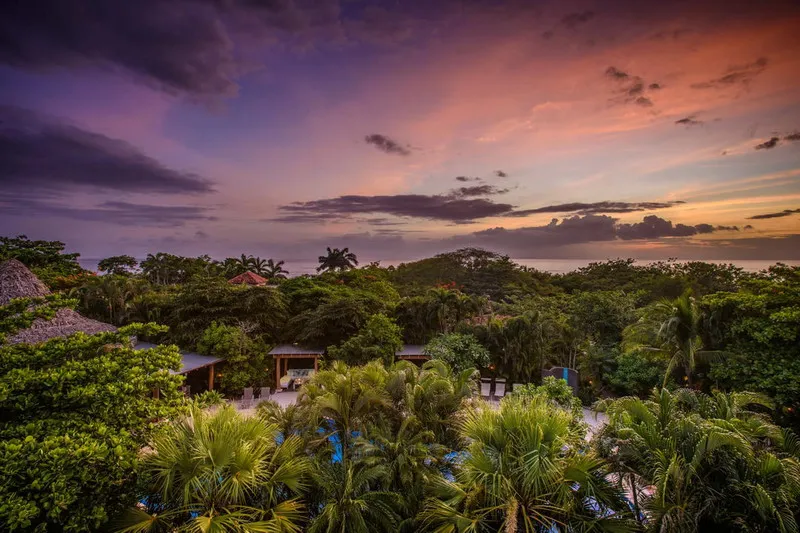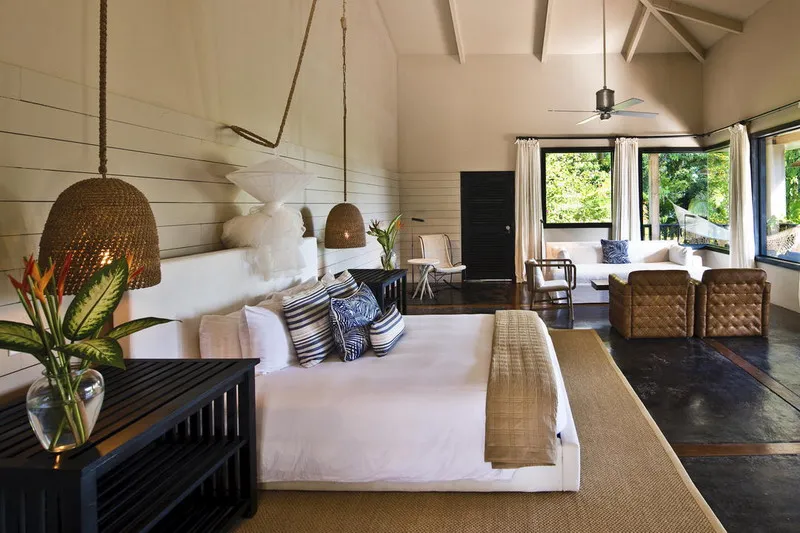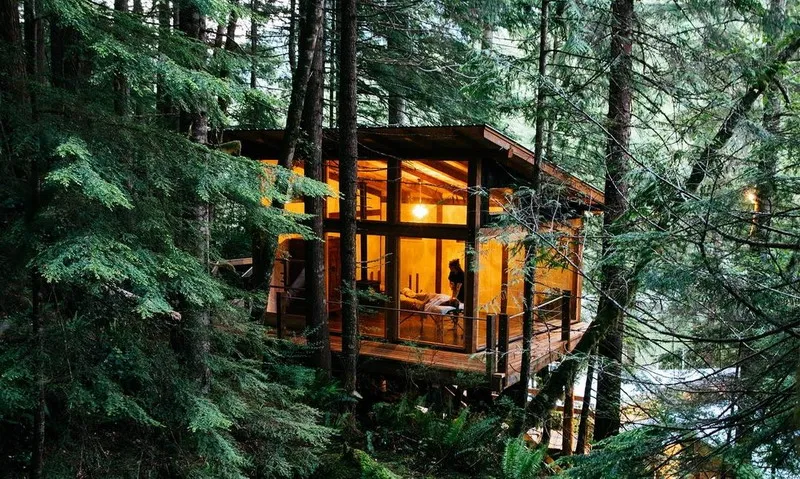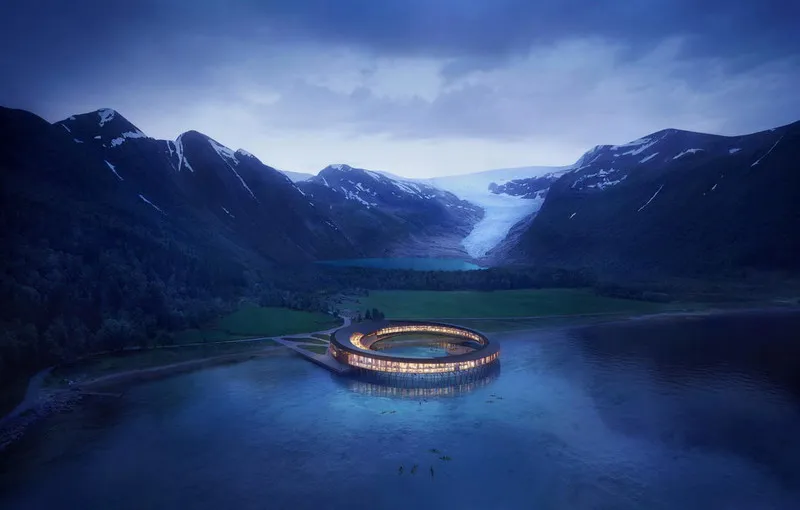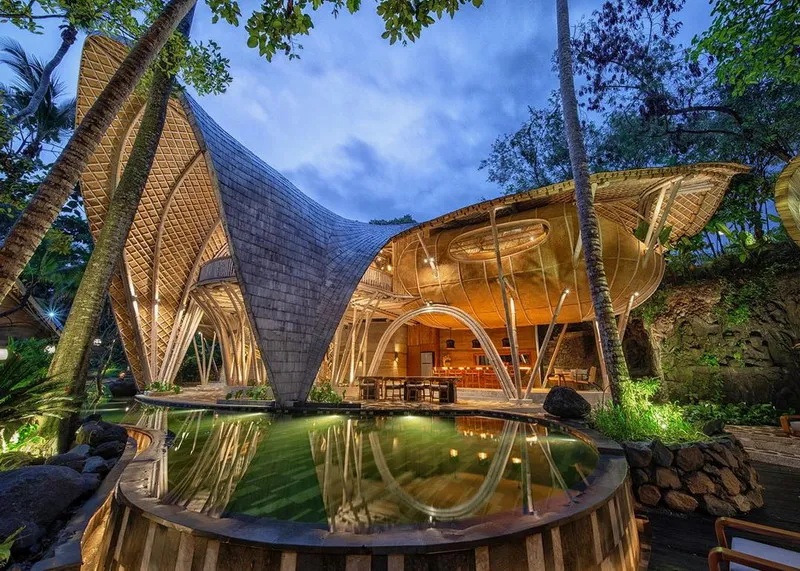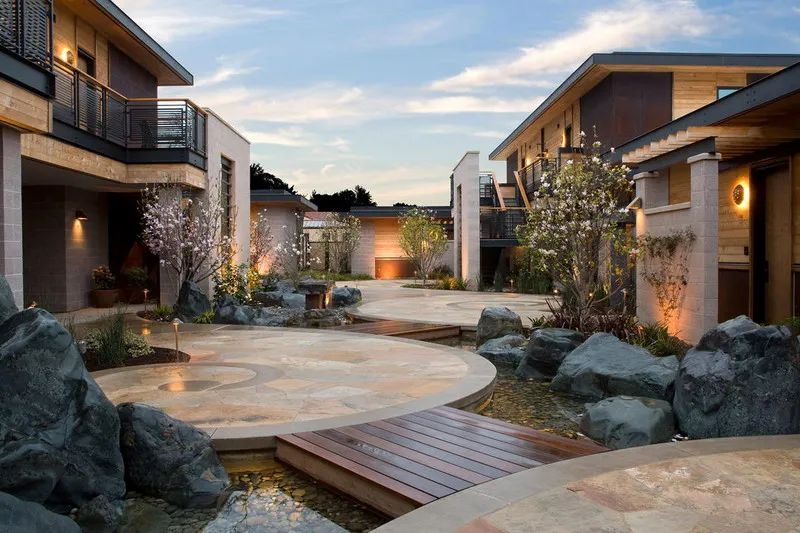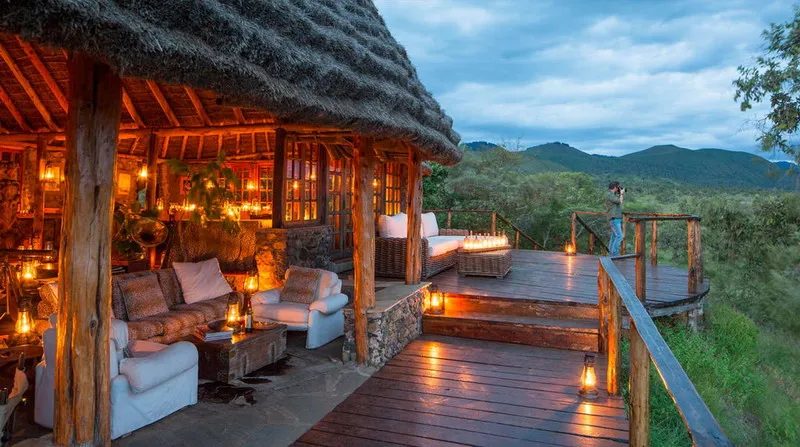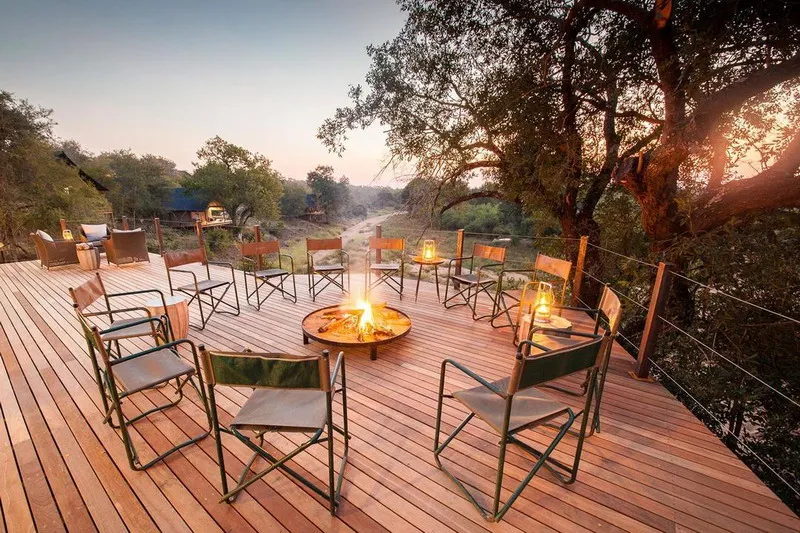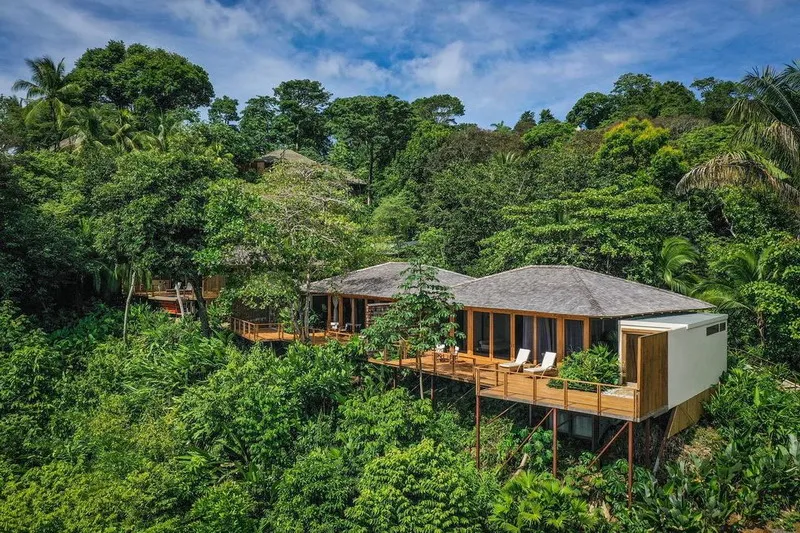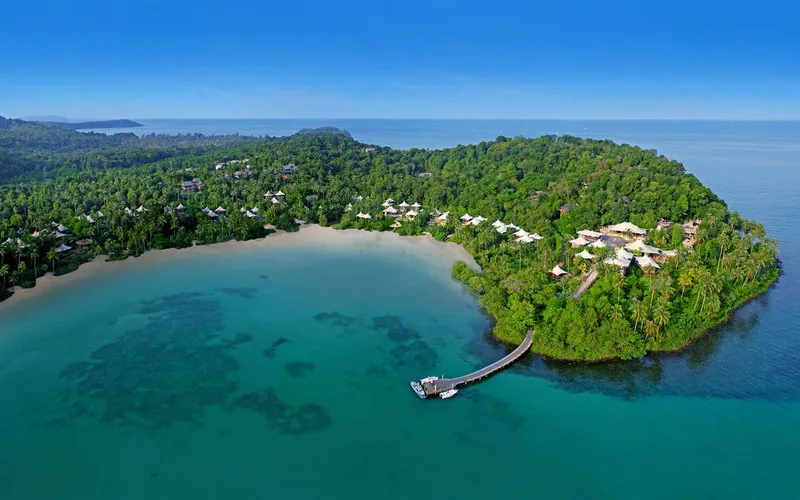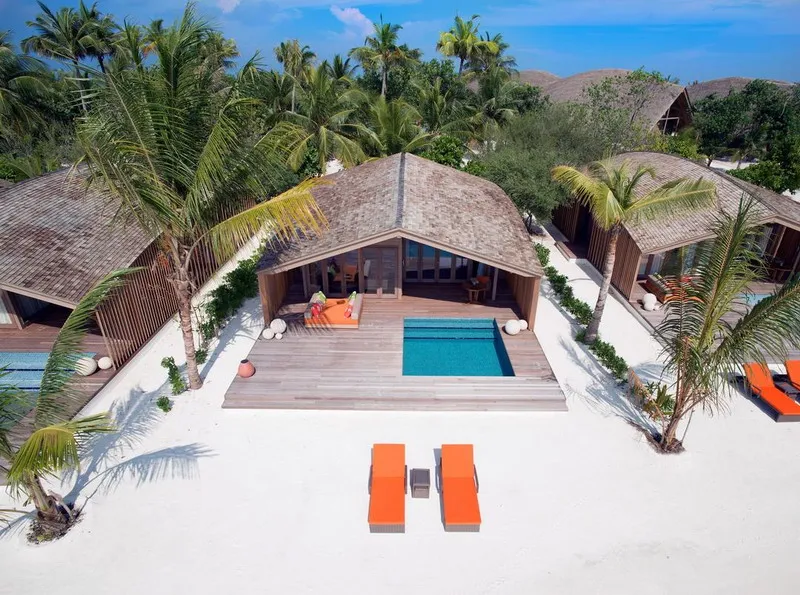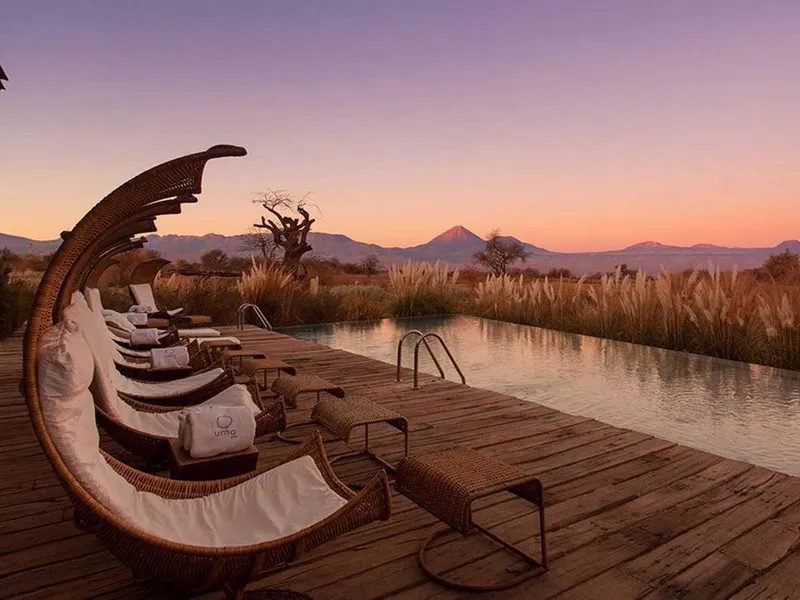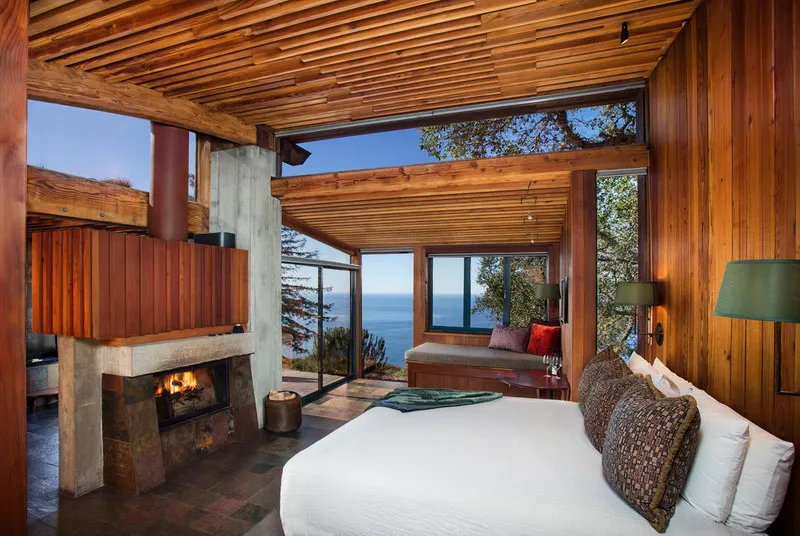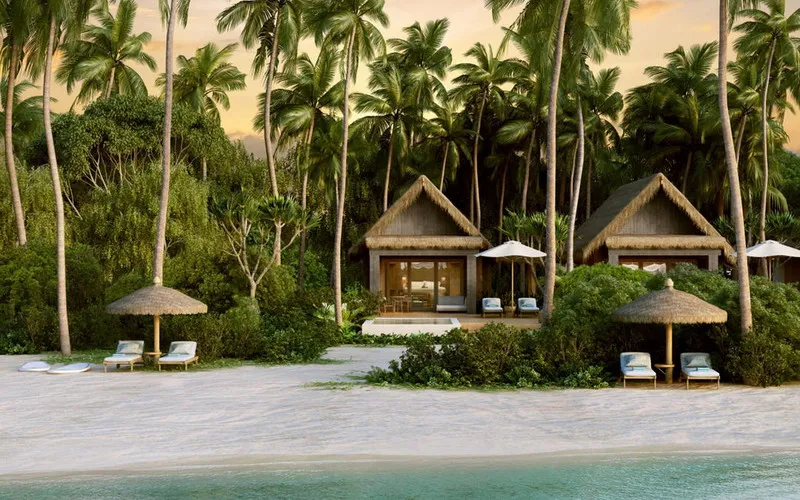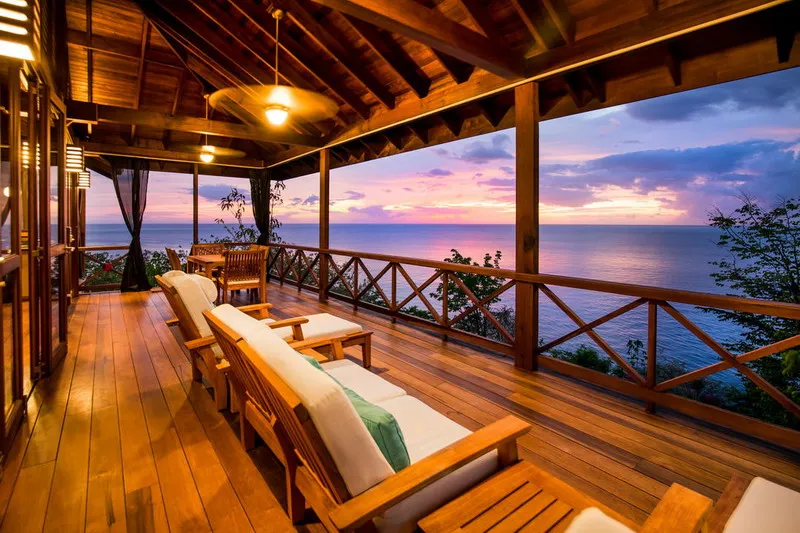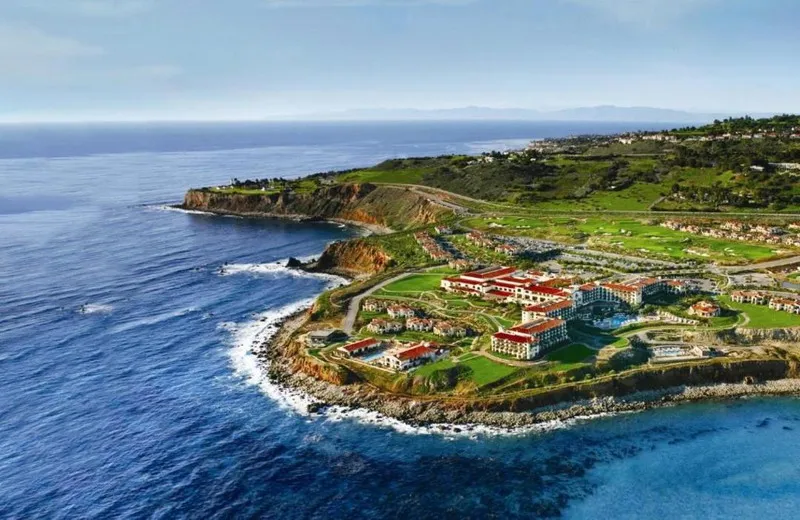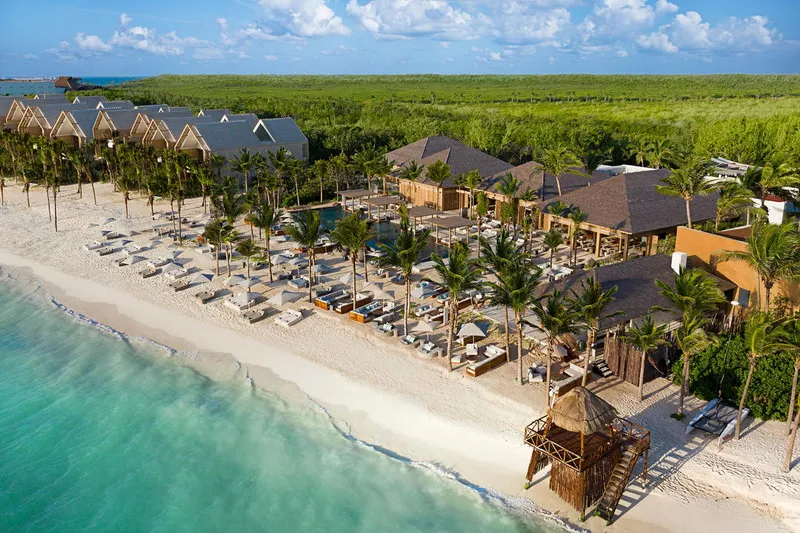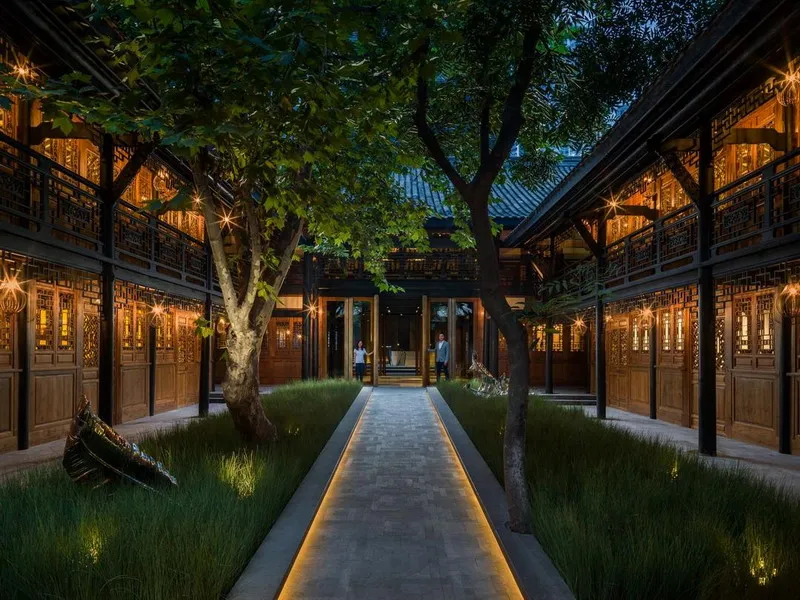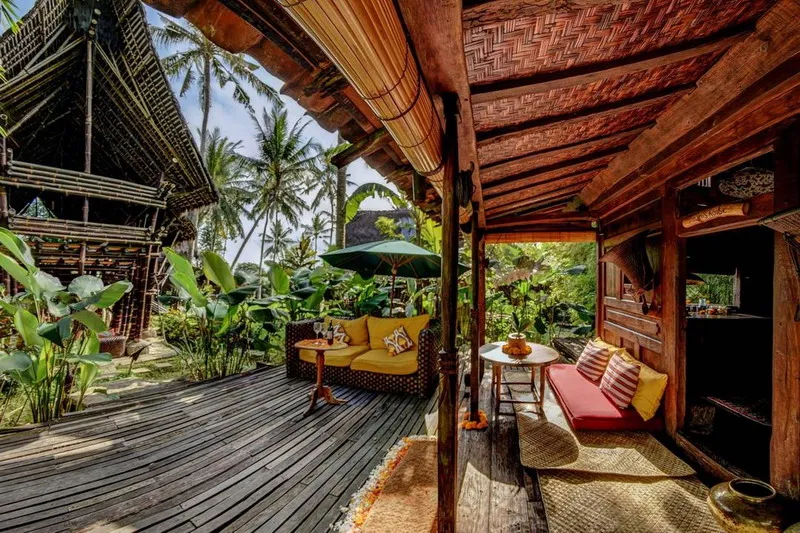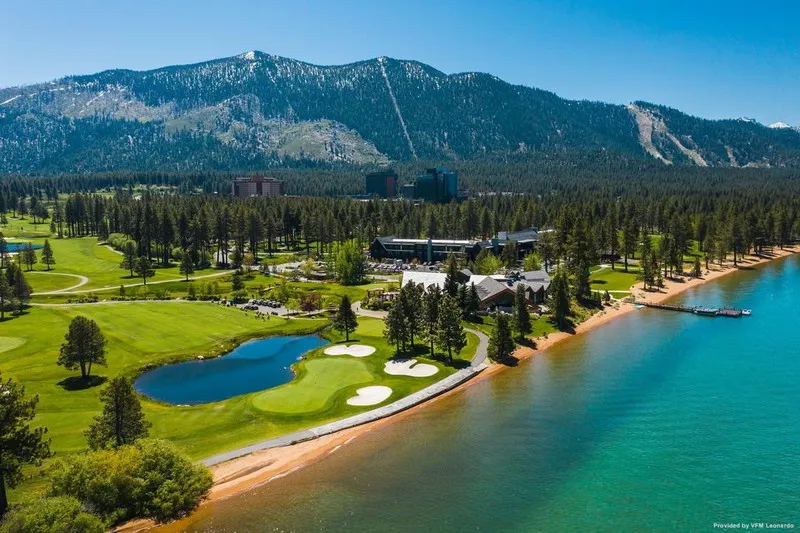The eco-tourism movement is gaining momentum every year, so hotels and resorts cannot stay away either. According to a survey by the Center for Responsible Travel, one in five travelers are willing to pay more for a so-called “green vacation.” Many tourists are interested not just in environmentally friendly resorts, but in those that make a significant contribution to environmental protection. To obtain the coveted ECO status, they constantly work to reduce the negative impact on nature, implement measures to reduce their carbon footprint, and save water and electricity.
For those who dream of an elite “green” vacation – eco-resorts and eco-hotels around the world are worth visiting at least once. Here you don’t have to sacrifice convenience and comfort for the sake of living in harmony with nature. Getting to know authentic culture, hiking in protected areas, open-air meditation, organic cuisine – this is not a complete list of what you can get by choosing eco-tourism.
Eco-lodge, eco-hotel, eco-resort – how are they different?
The difference between an eco-resort, eco-lodge and eco-hotel lies in the location and number of services provided. Resorts are large facilities that, in addition to rooms of various classes, include spas, fitness centers, restaurants and bars, and offer many options for excursions and entertainment.
Ecology hotels are small hotels that are most often built on the territory of nature reserves or national parks. Despite their location far from civilization, they offer a high level of comfort and a rich recreation program. The words “eco-resort” and “ecolodge” are increasingly used interchangeably.
Eco-friendly hotels are often located relatively close to big cities, in beautiful locations surrounded by untouched nature. They are aimed not only at providing a comfortable stay, but also at protecting the environment. Many “green” hotels are built using technology from indigenous tribes living in protected areas. In this case, only local materials are used – wood, stone, canvas, bamboo, etc.
In addition to standard services, modern eco-resorts and eco-hotels offer guests to participate in nature protection programs. To reduce your environmental impact, simply work in an organic garden or animal nursery, buy local produce, or simply skip changing your bedding every day.
Cala Luna Boutique Hotel & Villas, Costa Rica
Not far from the fishing village of Tamarindo, on the northwestern coast of Costa Rica, is the eco-friendly Cala Luna Boutique Hotel & Villas. Its villas, built from local wood, are surrounded by tropical plants. Guests have the opportunity to observe the life of jungle inhabitants – birds, iguanas, monkeys.
The management of the eco-resort, located on the territory of the sea turtle reserve, cares about the preservation of wildlife. In 2019, one of the largest energy installations in Central America was launched here. 1,400 solar panels provide the complex with energy and make it possible to reduce the emission of harmful substances into the atmosphere.
The hotel’s restaurant serves vegetables and fruits grown on La Senda’s own organic farm. For cocktails, bamboo rather than plastic straws are used. Lunch is complemented by exclusive wines, which are also recognized as organic.
Cala Luna guests have access to a spa center (Shankha Spa). For cosmetic procedures, natural ingredients are used here – honey, chocolate, herbs, clay, fruits, sea salt. The programs combine modern Western techniques and ancient Tibetan techniques. Guests are offered several types of massages, scrubs, wraps, masks, as well as yoga and meditation classes.
Copal Tree Lodge, Belize
Californian company Belcampo has opened an eco-resort in southern Belize called Copal Tree Lodge. This luxury lodge is located in the Mayan Mountains of Punta Gorda and is surrounded by pristine rainforest. It offers 16 suites, a large three-bedroom villa, two swimming pools, a restaurant, bar and spa.
Trees for making furniture were not cut down here, but only those that fell on their own were selected. In addition, Copal Tree Lodge staff plant several thousand green spaces each year to support its agroforestry program.
The eco-lodge owns a 1,241-hectare certified organic farm. In addition to vegetables and fruits, sugar cane, coffee, cocoa, and vanilla are cultivated on it. 70% of the dishes on the restaurant menu are prepared from products grown on their own farm, the rest are purchased from local producers.
In 2018, Copal Tree Lodge opened a winery that produces premium Coppalli rum using pure rainwater. Distillation stills run on biomass. A complete waste recycling cycle minimizes the negative impact on the environment, and excess water is used to apply fertilizers on the farm.
To help reduce waste, the lodge offers aluminum water bottles, biodegradable bags and containers.
Nimmo Bay Wilderness, British Columbia
The history of the famous ecological resort Nimmo Bay Wilderness began with a small fishing lodge in the heart of the wild forests on the shores of Nimmo Bay (British Columbia). In 1980, Craig and Deborah Murray arrived here, deciding to live in harmony with nature. It is now a popular destination for adventure seekers and outdoor enthusiasts.
Surrounded by mountains and waterfalls, the resort can only be reached by seaplane or helicopter. Guests are accommodated in nine comfortable chalets. The main idea of Nimmo Bay Wilderness is solitude and reconnection with wild nature. The team invites guests to explore Nimo Bay in kayaks and watch the life of seals, killer whales, and humpback whales. A guided hike through the protected forest and boating on mountain rivers is an excellent opportunity to study the habits of grizzly bears.
The resort’s restaurant serves dishes made from freshly caught fish and seafood. Meat, vegetables and fruit are sourced from an organic farm, while herbs and berries are collected from the forest.
Nimmo Bay Wilderness invites guests to immerse themselves in the healing tranquility of nature with outdoor yoga and meditation sessions. After exercising, you can relax in the hot tubs located at the base of the waterfall.
A hydroelectric turbine is installed next to the 5,000-foot waterfall. It provides 80% of the resort’s electricity needs and supplies clean drinking water. To reduce waste, Nimmo Bay Wilderness uses composting as well as a wastewater treatment system.
Ecohotel Svart, Norway
Architectural bureau Snohetta, together with Asplan Viak, Arctic Adventures of Norway and Skanska, created Svart – the world’s first energy-independent hotel in the Arctic Circle. It is located at the foot of the Svartisen glacier in Northern Norway, after which it was named. Over time, the Swart should become a self-sufficient energy-efficient eco-hotel, producing more electricity than it needs to operate. It is planned to fully provide electricity to all systems included in the complex, including the organic farm and water transport.
When creating the hotel, the architects were inspired by traditional Norwegian coastal buildings – fiskehjell (fish drying structure) and rorbu (seasonal fisherman’s house). The building stands on solid wooden stilts, partially submerged in the waters of the Holandsfjorden fjord. Panoramic windows allow you to admire the Northern Lights right from your room.
The hotel’s energy is provided by solar panels located on its roof. After studying the distribution of sun light throughout the year, the architects chose a ring-shaped shape for the building. The rooms and terraces are located to make maximum use of solar energy, regardless of the time of year. In addition, to minimize the harmful impact on nature, the hotel uses modern rainwater collection and wastewater filtration systems.
Svart offers its guests 99 rooms, a spa, a wellness clinic and four restaurants. Most of the dishes on the menu are made from local organic products. The active recreation program includes exploring glacier tunnels, sailing through fjords, deep-sea fishing and glacier climbing.
Ulaman Eco Retreat, Bali
Ulaman Eco Retreat invites guests to immerse themselves in traditional Balinese culture and reconnect with nature without sacrificing comfort and luxury. The complex is located in the village of Kaba Kaba, half an hour’s drive from Canggu and Ubud. The 11 guest villas feature distinctive curved roofs and are built from bamboo and other natural materials. The hotel is powered by a water turbine system fed by a waterfall.
The resort offers guests a variety of leisure activities. On a cliff overlooking the waterfall there is a yoga shala where yoga classes and meditation sessions are held. Those who wish can undergo the Buddhist Melukat ritual here and cleanse their karma. The “village” tour introduces you to the life and traditions of the inhabitants of the Balinese hinterland. You can also go hiking through the rice fields or take a bike ride in the surrounding area.
Vegetables and fruits for the restaurant are grown in an organic garden and purchased from local farmers. The menu includes traditional Balinese, Asian and modern Western cuisines, including vegetarian options.
Bardessono Eco Resort and Spa, California
The luxurious and beautiful Bardessono Eco Resort and Spa is located in Yountville, California, in the heart of Napa Valley. It is one of the few hotels in the United States to be LEED Platinum certified. Wood and recycled steel were used for its construction. Designers practiced recycling materials. For example, the stone that decorates the hall was taken from the Bardessono family wine cellar and cut into panels. The ceilings in the common areas are made from planks made from old wine barrels.
Thermal wells are used to heat, cool and supply hot water to the hotel’s 62 rooms. To reduce the temperature in the rooms in the summer, but allow the sun’s rays to warm them in the winter, special projections were designed in the walls of the buildings. If guests are absent, sensors increase or decrease the temperature in the room by several degrees.
Large windows eliminate the need for artificial lighting during the day. Approximately half of the hotel’s total electricity needs are provided by solar panels located on the roof.
Locally produced organic products are used to prepare dishes in the restaurant. Bardessono Eco Resort and Spa has a certified organic garden.
When going on holiday to Bardessono, you can take your dog with you. On the first Tuesday of every month there is a happy hour for pet owners. At DogBar you can get a free glass of wine for yourself and a treat for your four-legged friend.
Campi ya Kanzi lodge, Kenya
An incredible combination of luxury and relaxation in the wild African nature offers its guests the Campi ya Kanzi eco-lodge. It is located in the south of Kenya, in the Chulu Hills, on the territory of the Masai tribe reserve. The six cottages are built from natural materials – wood, lava stone and canvas. Trees felled by elephants were used to make furniture here – none of them were cut down on purpose. The rooms offer excellent views of Kilimanjaro, and in the morning and evening, right from the terrace, you can watch the animals that come to drink.
The main attractions for guests at Campi ya Kanzi are safaris in the Kanzi Game Reserve or Amboseli National Park, trips to a Maasai village and getting to know their culture. Experienced guides show you the habitats of lions, tigers, elephants, hyenas, cheetahs, and zebras. An air safari is also offered – a flight on a light aircraft to the Masai Mara Reserve, Serengeti National Park, Zanzibar. It is possible to create an individual itinerary for exploring Africa.
The main goal of creating an eco-lodge is to support the Maasai tribe and preserve their culture. All guests pay a special environmental fee daily. Responsible eco-tourism ensures that wildlife, an important part of Maasai life, remains intact.
The eco-lodge’s electricity needs are fully covered by photovoltaic panels. Using a special system, rainwater is collected and stored in huge tanks. Dishes in the kitchen are prepared using environmentally friendly charcoal made from coffee husks. All food waste is composted and used to fertilize the garden.
Garonga Safari Camp, Makalali, South Africa
The Garonga Safari Camp complex is located on the territory of the Makalali private reserve in South Africa. It consists of three luxury safari camps: Garonga Safari Camp, Little Garonga and MCH. The suites here are designed in the form of tents and bungalows. Wood, leather and canvas were used as building materials. Guests have at their disposal terraces with hammocks, comfortable bathrooms, outdoor showers, and swimming pools.
Safaris are organized for tourists throughout the reserve, during which you can see and photograph the Big African Five – elephant, buffalo, rhinoceros, lion and leopard. After a walk, you can relax in a massage salon, do yoga on a special area, and in the evening admire the stars while lying in a huge open-air bathtub.
Garonga Safari Co advocates for sustainable safaris in Africa. To reduce its carbon footprint, the camp uses solar energy as much as possible. All garbage is sorted here, and food waste is transported to warthog habitats. The camp has a sewage filtration plant. Guests are provided with reusable metal water bottles and trash bags are made from biodegradable materials.
Lapa Rios Resort, Costa Rica
According to Conde Travel & Leisure and Nast Traveler magazines, Lapa Rios Ecolodge is recognized as one of the best eco-resorts in Latin America. It is located on the Osa Peninsula in Costa Rica, on the Pacific Ocean surrounded by tropical rain forests.
Those who want to live among the wild will not have to compromise on comfort and safety. Each of the 17 luxury bungalows can accommodate up to 4 people. Cabins have private bathrooms and outdoor showers and a deck or patio with stunning jungle and ocean views. In the mornings, guests are awakened by the singing of birds and the cries of howler monkeys.
The purpose of Lapa Rios is to protect endangered lowland tropical forests. This is the habitat of many rare species of animals and birds, which experienced naturalist guides introduce guests to during walks.
Lapa Rios uses sustainable practices – the bungalows have solar-heated water, environmentally friendly cleaning products and 100% biodegradable toiletries. The company is working on creating an organic jungle garden that will grow vegetables and herbs for the restaurant. The menu features only ingredients sourced from local farmers and fishermen. The lodge does not use plastic tableware – water is bottled in reusable bottles, and straws for cocktails are made from bamboo.
Soneva Kiri Resort, Thailand
One of the most exquisite secluded resorts in the world is Soneva Kiri Resort on the island of Koh Kood in Thailand. Luxury meets sustainable design, with 34 spacious villas offering ocean or bay views that blend seamlessly into the natural landscape. The houses are designed in traditional Thai style, which is characterized by simplicity and sophistication. The materials used were wood, stone and canvas, and the construction techniques were chosen with environmental protection in mind.
Guests of the eco-hotel never get bored. The beaches of Koh Kood are some of the most beautiful in Thailand. Here you can relax on comfortable sun loungers in the shade of palm trees, go snorkeling, surfing, wakeboarding or take a catamaran ride. The resort organizes sea cruises, hikes to the island’s waterfalls, trips to a traditional Thai village, and culinary master classes.
Soneva’s philosophy is true reconnection with the natural world. Upon arrival on the island, all guests are asked to remove their shoes and walk barefoot on the beach. Guests pay an environmental fee of 2% of the cost of their stay. The resort has its own organic garden, the vegetables and fruits from which are used in the restaurant’s kitchen. Modern water management and waste recycling systems can reduce emissions of harmful substances. In addition, the Soneva Foundation is funding a campaign for fuel-efficient cookstoves in Myanmar and is involved in a coral restoration project in the Maldives.
Club Med Finolhu Villas, Maldives
Club Med Finolhu Villas is the world’s first eco-resort powered entirely by solar energy. 52 luxury villas are located on a private atoll in the Maldives, accessible only by boat. 22 houses are on the beach, the remaining 30 are on the water. On the roof of the bridge connecting them are solar panels that generate 900 kW of electricity per day. When designing eco-villas, architect Yuji Yamazaki and designer Meriem Hall were inspired by the beauty of nature. The design of the houses allows to reduce energy losses. In 2015, Club Med Finolhu Villas was awarded the International Hotel and Property Award as the best beach resort. It has also received the prestigious Green Globe eco-certification for its efficient energy system. The eco-resort operates according to the Premium All Inclusive concept. Guests have a personal butler at their service who takes care of their comfort. The price includes not only meals, but also a sports program and entertainment. And there are plenty of them here – flyboarding, diving, surfing, wakeboarding, water skiing, volleyball, yoga and much more.
Tierra Atacama Hotel & Spa, Chile
In the Tierra Atacama Desert, in the heart of Tierra del Fuego, the Tierra Atacama Hotel & Spa is located. All of its 32 rooms offer stunning views of the Andes mountain range and the Licancabur volcano. The rooms here are authentically designed, with hand-woven throws, cowhide rugs and llama figurines carved from volcanic rock.
The hotel offers guests a personalized excursion plan and a variety of activities – horseback riding, climbing the Lascar volcano, stargazing in the desert, trips to the Sekar salt lagoon, car and bicycle tours to Devil’s Canyon and Death Valley. The luxurious spa salon (Uma Spa) invites you to recuperate in the hydromassage baths, sauna or steam room, and pamper yourself with a massage or body wrap.
Tierra Atacama Hotel & Spa was one of the first in South America to use solar energy. The water here is obtained from its own well, and the wastewater is treated and used to irrigate gardens and revive arable land.
The Atacama Desert is one of the best places on Earth for stargazing. Tierra Atacama organizes night tours, during which you can admire the starry sky, armed with a professional telescope. Guests are accompanied by astronomy experts.
Post Ranch Inn, California
In Big Sur, on the coast of central California, the luxurious eco-resort Post Ranch Inn is located on a clifftop. It offers rooms with ocean or mountain views, private villas or a tree house. So that guests can completely relax, forget about the hustle and bustle and reconnect with nature, there are no TVs or alarm clocks in the rooms. Breakfast, minibar drinks, internet access, yoga classes, guided tours and much more are included in your stay. The complex includes two spa centers, a swimming pool, and a fitness center. The Sierra Mar restaurant expertly prepares dishes using locally sourced ingredients.
The hotel adheres to the principles of ecological management – luxury here is combined with concern for the environment. You can only move around the territory using hybrid vehicles. Natural materials were used in the construction of buildings. The walls of the houses are lined with boards from old wine barrels. Water extracted from our own wells is bottled in reusable bottles. The resort has a state-of-the-art waste recycling and wastewater treatment program. In 2009, solar panels were installed, generating 350,000 kW of electricity per year.
Six Senses, Fiji
In April 2018, the luxury natural resort Six Senses opened on Malolo Island (Fiji). Here, on a snow-white beach surrounded by tropical trees, there are 24 villas with private pools and 11 residences for VIP guests.
You can come to Six Senses at any time of the year. This is an ideal place for surfing, snorkeling, diving, kayaking, and water skiing. Other activities offered include exploring Malolo Island, a green tour of the resort’s organic garden, sailing boat trips to the reef and shellfish harvesting, visiting local villages and participating in ancient Fijian rituals, and helicopter flights. In the evening, you can watch a movie in the open-air cinema or take a cooking class.
The resort has an environmental development program. It includes growing your own organic produce, as well as a system for saving energy and drinking water. Six Senses operates one of the largest solar installations in the Southern Hemisphere. Tesla batteries fully power the resort and desalination plants. Cluckingham Palace Farm has chickens that lay fresh eggs daily and also has an apiary. All food waste is turned into compost and used to fertilize the organic garden.
The eco-resort is home to endangered Fijian crested iguanas. At the time the hotel opened, there were 17 of them; in 2021, the number of individuals increased to 39. The iguana habitat has become a nature reserve, and Six Senses management is doing everything possible to preserve this rare species.
Secret Bay, Portsmouth
On the northwestern coast of the island of Dominica, near Portsmouth, is the six-star eco hotel Secret Bay. The complex includes 10 luxury villas with private pools. The rooms have high-speed Wi-Fi, and guests are provided with an iPhone with the necessary contacts and applications.
The recreation program at Secret Bay is very rich. Free snorkeling and diving equipment, kayaks and surfboards are provided. Bwa Mang Wellness Pavilion offers yoga and meditation classes, and Gommier Spa offers massages. Outdoor enthusiasts can explore the Waitukubuli Trail, hike to waterfalls and other natural attractions on the island, go horseback riding or go sea fishing.
The luxury hotel combines hospitality with environmental friendliness. The villas here are made entirely from eco-friendly Guyanese hardwood, and no heavy machinery was used in the construction of the complex. Hotel staff use environmentally friendly, environmentally friendly cleaning products and biodegradable gloves. The restaurant supplies fresh produce from its own organic farm, and there is an organic garden near each villa.
Terranea Resort, California
Located on the Palos Verdes Peninsula, the eco-friendly Terranea Resort is one of the best places to stay on the Southern California coast. Suites in the main building, as well as bungalows, cottages and villas offer stunning views of the Pacific Ocean. The resort includes several restaurants, four swimming pools, a golf club and a spa.
Terranea Resort offers guests a variety of leisure options. Programs include archery and falconry lessons, ocean kayaking, paddle boarding, stand up paddle boarding, horse riding and guided coastal hikes. The spa offers classic relaxing and therapeutic massages, facial and body treatments. And in the fitness center there are classes in yoga, Pilates, and water aerobics.
Terranea Resort is designed to protect the unique natural environment of Palos Verdes. The company adheres to the concept of reducing water and energy consumption, as well as reducing the amount of waste through recycling. Surplus food and unused toiletries are sent to those in need. The restaurants offer seasonal menus, and all dishes are prepared exclusively from local products. Vegetables, fruits and herbs are sourced from organic Catalina View Gardens.
Uniforms for hotel employees are made from natural materials – cotton, hemp, wool. Organic dry cleaning services are available. There is a voluntary reuse program for guests to reuse towels and bed linen.
Banyan Tree Mayakoba, Mexico
Banyan Tree Mayakoba is an eco-friendly hotel that combines the hospitality and culture of Mexico. The complex is located on the territory of the Mayakoba private reserve (Yucatan Peninsula). Luxury villas stand between white sandy beaches and emerald mangroves, and guests can fully enjoy privacy and personal service of the highest level.
The spirit of ancient Mayan culture and traditions is palpable in the architecture and design of the villas. Each home has a patio, landscaped garden, pool and outdoor Jacuzzi.
In addition to the standard activities (spa, fitness, yoga, trekking, kayaking), Banyan Tree Mayakoba offers guests to participate in environmental conservation activities. Children try to make paper from waste paper, and adults plant trees as part of a reforestation program. At a sea turtle sanctuary, you can help newborn hatchlings reach the sea while protecting them from birds of prey.
Banyan Tree Mayakoba has received numerous awards for its environmental compliance. The hotel practically does not use plastic; water here is bottled in glass, cocktail straws are made from paper, and disposable cups are made from biodegradable materials. Food waste is sent to pig farms, the rest of the garbage is sorted. In addition, the company is involved in a coral reef restoration program.
Six Senses Qing Cheng Mountain, China
Set amidst a mountain range, Six Senses Qing Cheng Mountain Resort is built on the principles of eco-luxury and intelligently integrated into the natural landscape. The purpose of creating the complex is to prove that comfortable and sophisticated relaxation can be combined with environmental protection.
Six Senses Qing Cheng Mountain offers unusual and interesting entertainment options for guests. For example, the resort partners with Panda Mountain, an organization dedicated to restoring the panda population. Guests can participate in the Red Panda and Giant Panda volunteer programs, spending a day at the nursery and working alongside keepers, or travel to Panda Valley to watch the giant pandas being fed. You can learn all about the life of these rare animals at Dujiangyan Panda Ark – the Chinese Center for the Conservation and Research of the Giant Panda, where excursions are also organized.
Six Senses Qing Cheng Mountain focuses on ecotourism and nature conservation. The resort’s restaurants use mainly vegetables and fruits from its own organic garden, as well as products from local farmers. Drinking water from wells is bottled in glass bottles, and the effluent is treated and used for irrigation.
Bambu Indah Hotel, Bali
Not far from the Balinese city of Ubud there is an unusual eco-boutique hotel Bambu Indah Hotel. The unique hotel was created in 2005 by Canadian designers John and Cynthia Hardy. The main construction and finishing material for most guest houses is bamboo, valued in Bali for its flexibility and durability.
John and Cynthia brought and carefully restored 11 traditional Javanese teak houses. Built almost 100 years ago, they were used as honeymoon accommodation. One of the houses was placed above the pond, and through the glass floor guests can watch the fish. The windows and terraces offer views of rice fields, mountains and tropical forest.
John’s daughter, Elora Hardy, and her design team designed and built two treehouses, Copper and Moon. They are made entirely of bamboo, and furniture and decorative items are also made from bamboo. The houses are provided with everything necessary for a comfortable stay – they have bathrooms, comfortable beds, air conditioning, Wi-Fi, and free personal hygiene products.
Bambu Indah Hotel not only has an eco-friendly design, but also operates on the principle of preserving the environment. The hotel has an organic vegetable garden that supplies the restaurant with vegetables and herbs. Well water is filtered using a reverse osmosis system. Food waste is fed to pigs or composted. The rooms are lit only by LED or oil lamps. Guests are asked to use bed linen and towels for two days. Smoking is prohibited on the hotel premises.
Instead of a regular swimming pool, the hotel has an ecological pond. No cement was used in its construction—the bottom was lined with black lava stone. The water in it is filtered by river plants, and the swimmers are accompanied by fish and frogs.
The Lodge at Edgewood Tahoe, USA
In 2017, the renowned Edgewood Tahoe Resort opened a lodge on the shores of Lake Tahoe (Sierra Nevada). The green building complex includes 154 rooms, a spa, a 200-seat bar, a ballroom, a children’s camp and adventure center, a jacuzzi, a heated pool and luxury shopping. The building is certified under the Leadership in Energy and Environmental Design system.
The resort’s owners set a goal to create luxury accommodations in the pristine Tagus Forest while preserving and enhancing local natural lands. During construction, traditional elements of the architecture of the American West were used – high roofs, an abundance of wooden surfaces, large windows. Local granite was used for wall cladding. About $100 million was invested in the project.
Edgewood Tahoe has many green initiatives. In particular, an extensive water filtration system and wastewater treatment system that ends up in Lake Tahoe has been created here. The company also purchased and demolished several old buildings, where a park was created after the soil was restored.
To reduce exhaust emissions, the resort has bicycle parking, electric shuttles for employees, and bicycle and pedestrian paths to commercial areas. Edgewood Tahoe is in touch with Clean the World, an organization that donates unused toiletries and soap to those in need. The lodge does not use plastic bags or disposable bottles.
